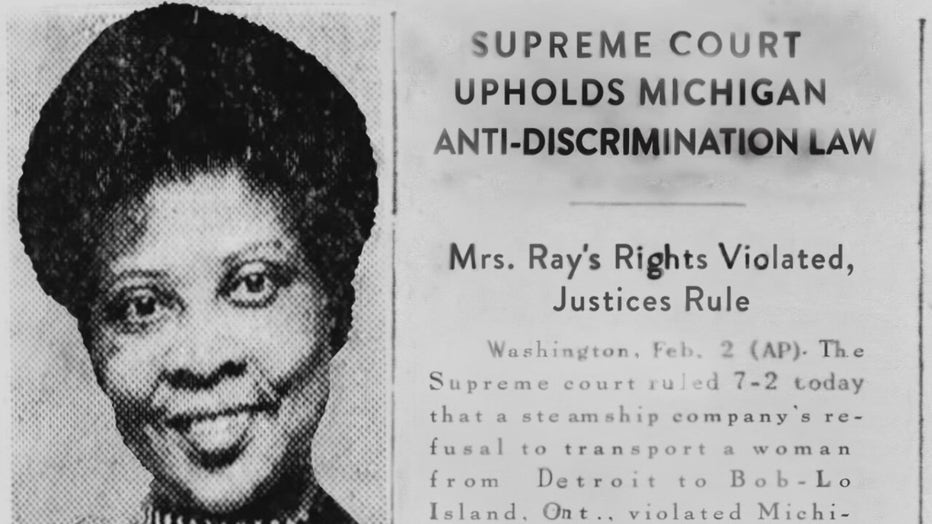'Detroit's other Rosa Parks': Sarah E. Ray featured in NYT book for fight against segregation

Detroit activist Sarah E. Ray recognized in NYT book
While Sarah Elizabeth Ray has often been overlooked when talking about powerful historical figures, a book compilation based on The New York Times series "Overlooked" will feature underappreciated people who broke the rules and changed the world for the better – including Ray.
DETROIT, Mich. (FOX 2) - Sarah Elizabeth Ray played a significant role in challenging segregation laws in the United States – even prior to Rosa Parks and the Montgomery Bus Boycott, or Linda Brown and Brown v. Board of Education. Now, a New York Times book is finally giving her credit.
An African American civil rights activist from Detroit, Sarah Elizabeth Ray, was "a role model, someone who had pride, someone who walked with dignity, someone who cared about others," said her great nephew, Kourtney Thompson.
In 1945, Ray was a secretarial student celebrating graduation with a class trip to Bob-Lo Island in Ontario. She was the only person of color attending the trip. After boarding the SS Columbia steamship, the assistant general manager of the Bob-Lo Excursion Company denied Ray passage solely based on her race.
"They came up and said ‘you will have to leave the boat,’ and I asked why? They told me that they didn't allow –I think they called us negroes in those days– on the boat," Ray said before her death in 2006.
Ray contacted the NAACP and sued the company. She was represented by the renowned civil rights lawyer, Thurgood Marshall, who later served as an associate justice of the U.S. Supreme Court.
In 1948, the case reached the U.S. Supreme Court, who ruled in Ray's favor, confirming that the Bob-Lo Excursion Co. was a public service and therefore had to comply with Michigan's anti-discrimination laws.

"I think she was proud of the victory - but i think she was prouder, more, that she stood on principle and made things change," Thompson said.
While Ray has often been overlooked when talking about powerful historical figures, a book compilation based on the NYT series "Overlooked" will feature underappreciated people who broke the rules and changed the world for the better – including Ray. The book will be available on Nov. 14.
She later became better known as Lizz Haskell after she got married to Rafael Haskell. Together, they started Action House on Detroit's east side in 1968. It was a non-profit community center that provided families with much-needed resources.
Action House has since been torn down, but Thompson grew up attending the center.
"She was about doing something," he said. "About taking action to make things better, not just for herself, but for people in her community and the community itself."
To learn more about Ray's story and efforts to save and restore her historic home, click here.


